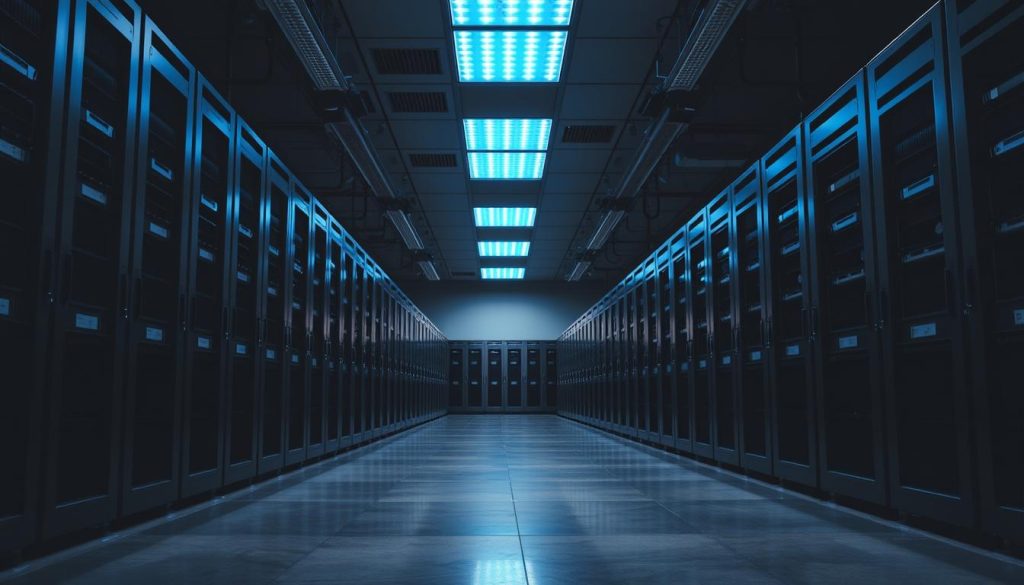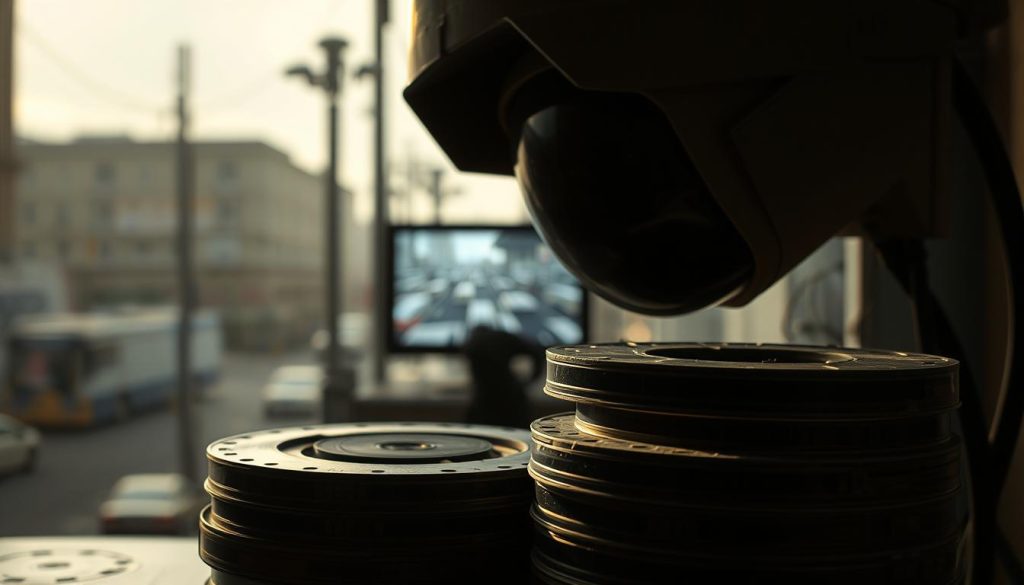The lifespan of CCTV footage is key for any security system. In Singapore, theft rates have jumped by over 25% in 2023. Knowing how long CCTV footage is kept is vital for safety and security. It usually lasts from 3 months to a year, depending on the equipment and storage methods.
This information helps manage security camera recordings well. It also shows the need for good CCTV data retention practices.
Key Takeaways
- The lifespan of CCTV footage can range from 3 months to one year.
- Increased theft rates heighten the need for effective surveillance.
- CCTV storage duration is influenced by equipment quality and methods.
- Understanding CCTV data retention is essential for all property owners.
- Proper management of security camera recordings is critical for safety.
Understanding CCTV Footage Retention
CCTV footage retention is key for managing video data in organizations. Different groups have different needs for how long to keep surveillance footage. Laws often set the minimum time to keep footage, making sure it’s available for legal and investigation needs.
This rule shapes how organizations handle their data. Some keep footage for weeks or months. This helps meet legal requirements.
Technology for storing video has improved. It makes managing a lot of footage easier. When deciding how long to keep footage, organizations look at storage space and recording settings. Changing the video quality or how often it’s recorded can save a lot of space.
Some companies keep footage longer to follow the law. Others keep it shorter based on their needs. Knowing these differences helps create better data management plans. These plans fit the specific needs of businesses or homes.
What is the lifespan of CCTV footage?
The CCTV footage lifespan depends on several factors. Most systems keep video for about 90 days. But, some setups can store footage for longer. Knowing how long does CCTV footage last involves looking at camera quality, how often it records, and storage space.
High-resolution cameras make bigger files. This can quickly fill storage, shortening how long footage is kept. Businesses, like those in finance, often need to keep footage longer to meet legal rules.
These companies must keep an eye on how long they store video. Changes in storage or using cloud services can help extend how long footage is available. This lets businesses meet their specific needs.
Factors Affecting the Lifespan of CCTV Footage
Many factors affecting CCTV footage lifespan play a role in how long video data stays usable. Things like humidity and temperature changes can harm the equipment. This can cause the video data to become corrupted or not work right.
The kind of recording device used is very important. Devices like Digital Video Recorders (DVRs) and Network Video Recorders (NVRs) handle video data differently. This affects how long the footage can be kept. For example, newer NVRs might keep footage longer than older DVRs.
Other important storage considerations include the number of cameras and the system’s setup. Systems with more cameras make more data, which can be hard to store. Also, laws might require keeping footage for certain periods, affecting how long it can be kept.
Storage Methods for CCTV Footage
When looking at CCTV storage, people often choose between Digital Video Recorders (DVR) and Network Video Recorders (NVR). Each has its own benefits for different needs. This makes picking between DVR and NVR key for managing video well.
Digital Video Recorders (DVR)
DVRs work with analog cameras, saving footage on hard drives. They are easy to set up and use. The storage space needed depends on the number of cameras and the video quality.
High-quality videos take up more space. This can make it hard to find older footage if the system is too small.
Network Video Recorders (NVR)
NVRs are for IP cameras, giving more freedom in where and how cameras are placed. They store data on a network, making it easier to access and manage. NVRs can handle higher resolutions, giving clearer images than DVRs.
Thanks to new video tech, NVRs are becoming more popular. They offer strong storage solutions for users.
Cloud Storage Solutions for CCTV Footage
Cloud CCTV storage has changed how we handle surveillance footage. It’s a flexible and secure way to manage your video. With a strong internet connection, you can store and get footage from anywhere.
This method keeps your data safe from local problems and environmental threats. It’s a big step up from old storage methods.
Cloud solutions get rid of the need for physical storage. This means you can keep footage for longer without worrying about hardware. You can access your data from anywhere, making it easier to watch over your space.
This makes managing your surveillance needs easier, even in changing situations. It’s a big advantage for businesses and individuals alike.
Investing in cloud CCTV storage helps businesses follow rules and keep information flowing smoothly. As more systems use online video, having reliable cloud solutions is more important than ever. To learn more about how long you can access footage, check out this resource.
Surveillance Hard Drives: Their Role in Footage Lifespan
Surveillance hard drives are key in managing CCTV systems. They are made to handle the constant writing needed for 24/7 video recording. Their design boosts CCTV footage reliability, keeping data safe and accessible for a long time.
Type of Hard Drives
Choosing a hard drive for surveillance depends on what you need. Hard disk drives (HDDs) are cheaper and hold more but write slower. Solid-state drives (SSDs) are faster and more durable, great for places needing quick data access.
The type of drive you pick affects how well you can store and get footage.
Capacity Considerations
The storage capacity of surveillance hard drives is very important. Bigger drives mean you can store more footage for longer. This is key for places that need to record a lot.
For example, places that need to record a lot should get bigger drives. This way, they can keep footage without having to constantly erase it. Knowing how much you need based on what you’re monitoring helps choose the right drive for keeping data safe.

Legal Regulations and Data Retention Policies
CCTV systems follow strict CCTV legal regulations to protect people’s privacy. In Singapore, the Personal Data Protection Act (PDPA) sets rules for data retention laws. These rules say how long CCTV footage can be kept and the need for good data management policies.
Companies must know their duties to follow the law and protect privacy. Following these rules helps CCTV operators keep sensitive info safe. This builds trust with clients and the public. Not following the rules can lead to big fines, so it’s key for businesses to keep up with laws and best practices.
The Importance of Camera Quality and Maintenance
CCTV camera quality is key to a good surveillance system. High-resolution cameras give clear images, helping to spot people and objects. This is very useful in crime investigations or watching over employees.
Keeping security systems in top shape is vital. Cleaning camera lenses is a simple yet effective step. Dust and dirt can block clear images, hurting the system’s performance.
Regular checks also help find and fix small problems early. Fixing small issues quickly stops them from becoming big problems. Regular upkeep keeps your equipment working well and reliable for video surveillance.
Environmental Factors Impacting CCTV Footage Lifespan
Environmental factors greatly affect how long CCTV systems last and work well. Things like humidity, extreme temperatures, and pollution can cause big problems. Cameras in areas with changing weather are at higher risk of breaking down.
For example, too much moisture can lead to corrosion. And, being in the heat for too long can damage the electronics inside.
Using protective measures is key to fighting these environmental challenges. Weather-resistant casings can protect cameras from the elements. Regular checks of the area around CCTV systems help make them work better.
These checks can spot threats from air quality and seasonal changes. This way, users can keep their systems running smoothly.
Having a good maintenance plan is important. It helps CCTV systems work well in different places. Knowing how weather affects CCTV systems helps users prevent damage. This way, they can make their surveillance footage last longer.
Typical Lifespan of Different CCTV Systems
The lifespan of CCTV systems varies a lot. It depends on use, technology, and how well they’re maintained. Knowing the difference between commercial and home systems helps understand their impact on security.
Commercial vs. Residential Systems
Commercial CCTV systems last longer than home systems. They use better parts, lasting over 10 years. Home systems, on the other hand, last 3 to 5 years. This shows why businesses should choose quality commercial CCTV for long-term security.
Analog vs. Digital Systems
Analog systems are older and don’t last as long. Digital systems, with their newer tech, last longer and work better. They’re a better choice for those who want reliable, long-lasting security.
To get the most out of your CCTV system, know what affects its lifespan. Regular care, quality parts, and the latest tech are key. For more on keeping your system running, check out this resource.
Best Practices for Managing CCTV Footage
Managing CCTV footage well is key to keeping video data safe and useful. It helps with legal rules and security. Regular backups are a must to keep important footage safe from hardware failures. It’s also important to decide how long to keep footage based on laws and company needs.
Having a set recording schedule helps organize video storage. It lets users focus on the most important footage. This makes it easier to find and use the footage when needed.
In summary, a good CCTV footage management plan includes regular backups, checking how long to keep footage, and a set recording schedule. This approach makes surveillance systems more valuable. It helps follow laws and boosts security in Singapore.

